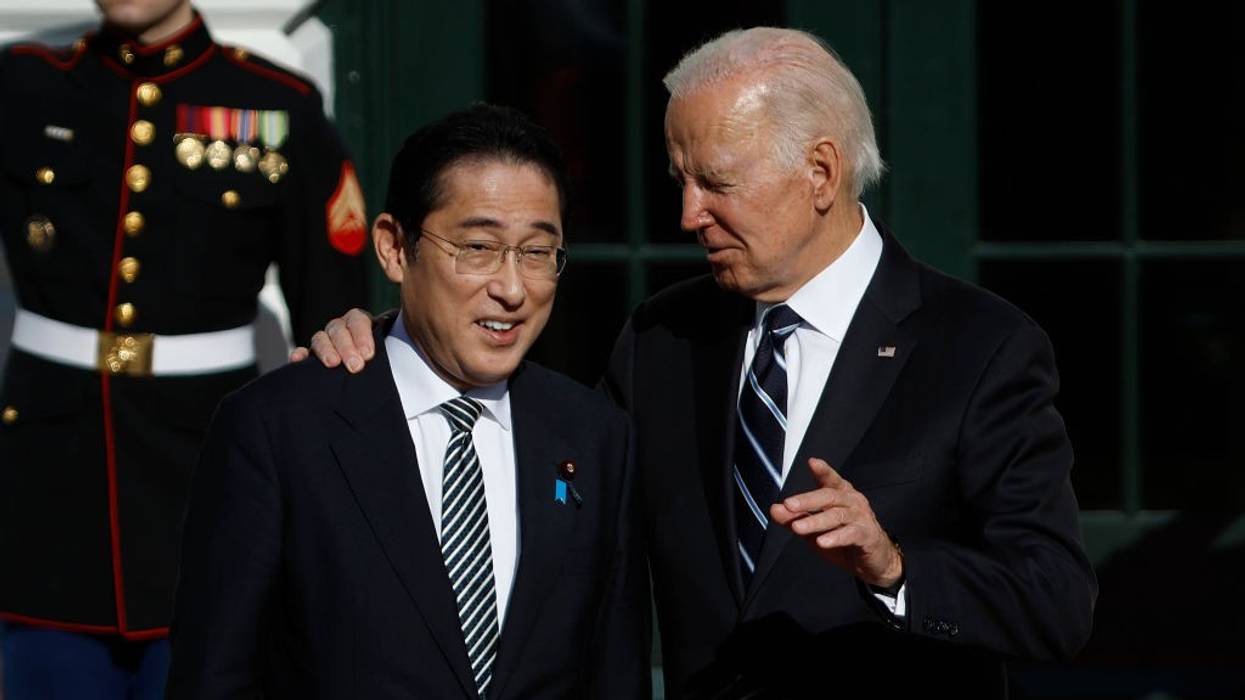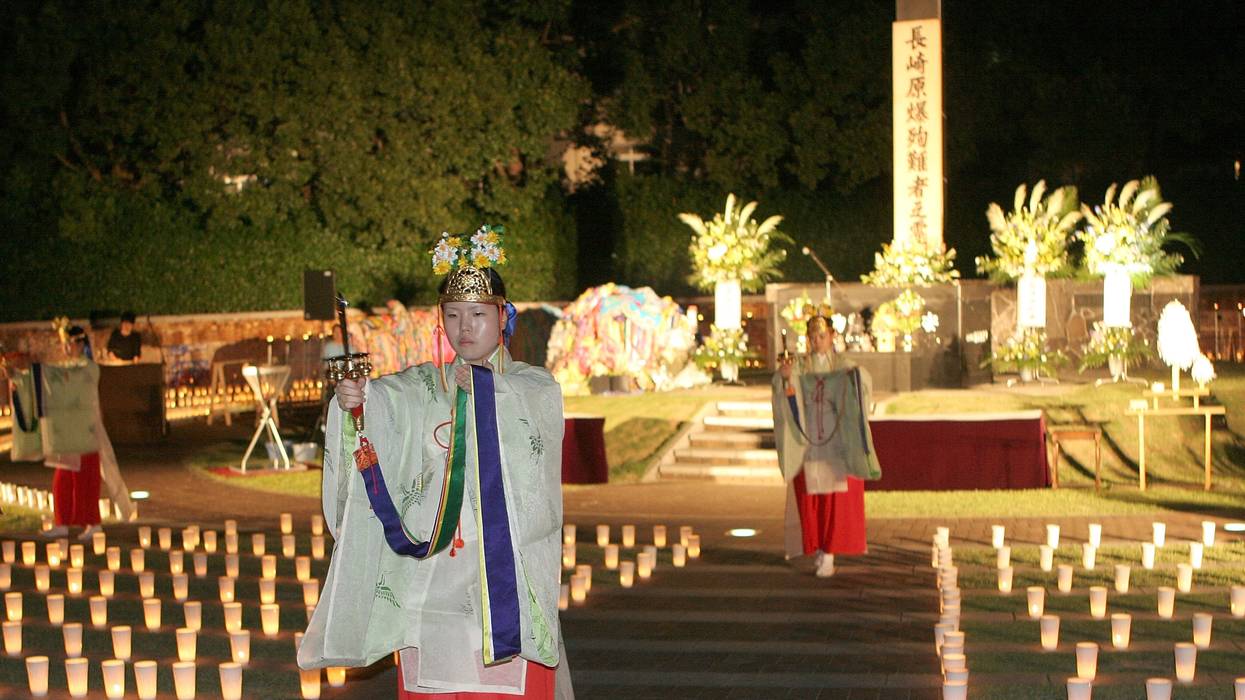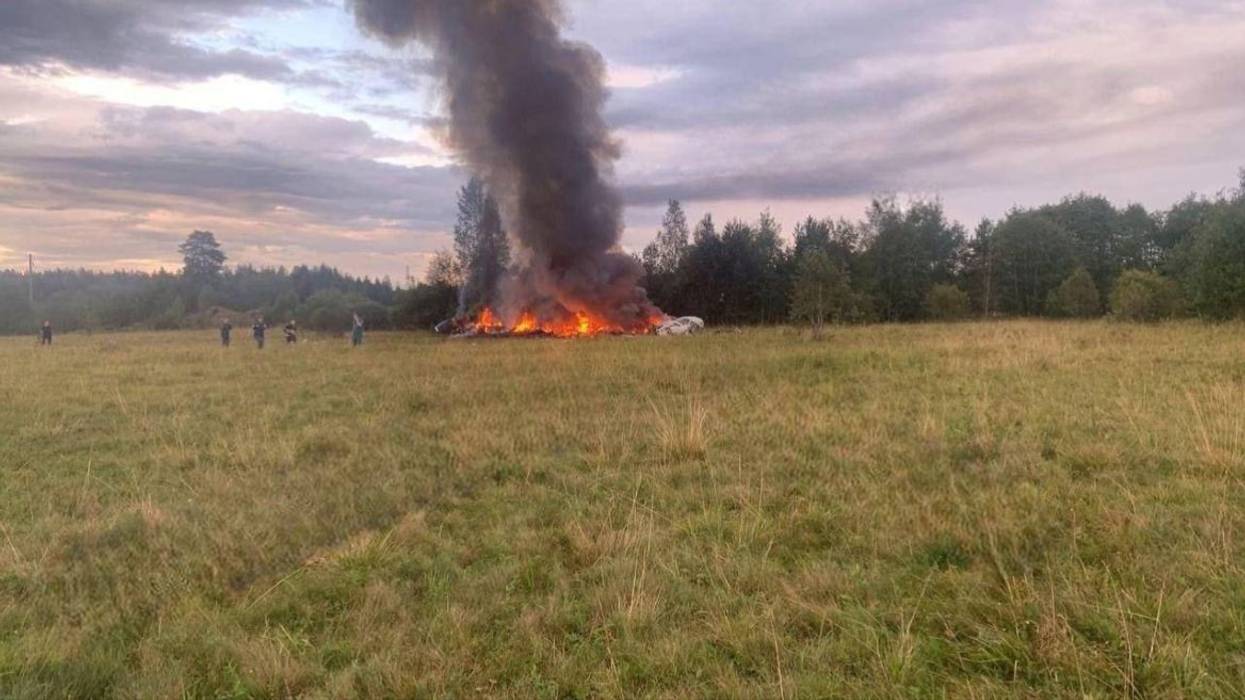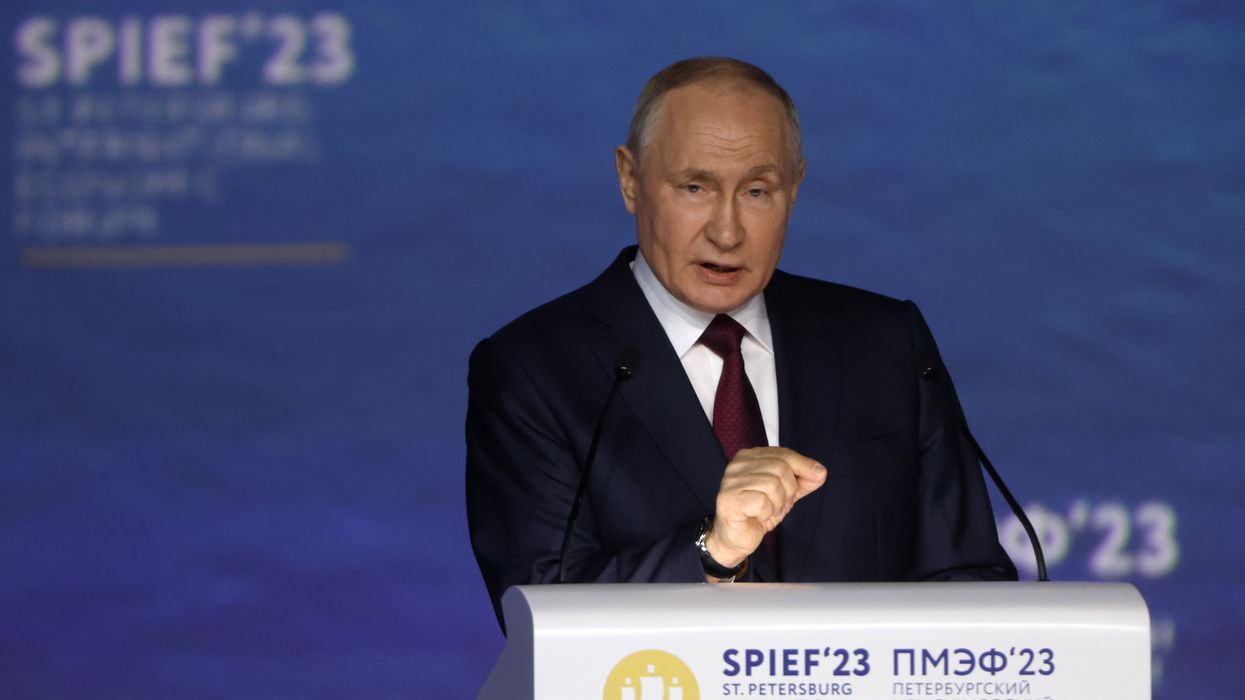When the New Fascists Fully Arrive, It's Not Going to Be Pretty in This World
We face an exceptionally dangerous and demanding period as we are moved into what appears to be a new era of Trump/MAGA fascism and desperate U.S. efforts to maintain its global dominance.
These are increasingly dangerous times. Several years ago, Walden Bello wrote a book about counterrevolution. With Trump and Vance, two classical fascists, recent U.S. Supreme Court decisions, and the Heritage Foundation Project 2025, we are approaching the climax of an American counterrevolution.
Bello has also recently reminded us of Antonio Gramsci’s insight about the time that we are living through: “The old world is dying, and the new world struggles to be born: now is the time of monsters.” Like Ulysses, we have to navigate the rapids between Scylla and Charybdis.
It is not going to be pretty.
Clearly President Joe Biden is no gift to the world. Recently a senior arms control diplomat who is close to Ron Klain, Biden’s first Chief of Staff, said that only three people can convince the president to step aside: Jill Biden, Nancy Pelosi, and Biden’s sister. There are reports that Pelosi will inform Biden that it’s time to go, but there are no guarantees that she will or that if she does he will step aside, or if he does step aside that the Democrats will be able to come up with a candidate who can beat Trump and his dishonest lackey Vance.
Little noticed here in the United States has been the immensely powerful and dangerous lattice-like network of U.S. military alliances assembled by the Biden Administration in the desperate, probably futile, and multi-faceted U.S campaign to contain China. As the NATO Summit Declaration put it, the threat as seen from Washington is “global and interconnected.” With the passing of the post Cold-War’s unilateral era and the relative decline of U.S. power, Washington has become increasingly dependent on alliances, across the Indo-Pacific and in Europe to contain Chinese and Russian ambitions. Hence the increasing integration of NATO with the array of U.S. Indo-Pacific alliances, some of which date from World War II’s transformation of the Pacific Ocean into an American Lake and others of more recent vintage.
Don’t expect this to change if, as seems likely, Trump regains the Oval Office. Over the last two and a half decades there has been remarkable continuity in U.S. Republican and Democratic administrations. The U.S. elite has understood, as Biden’s National Security Statement put it, that China “is the only competitor with both the intent to reshape the international order and, increasingly, the economic, diplomatic, military, and technological power to advance that objective.” Bush the Lesser planned to focus on China but was distracted by 9/11. Kurt Campbell and Obama gave us the Pivot to Asia. Trump doubled down on the Pivot. And despite the Ukraine and Gaza Wars, the People’s Liberation Army has been Biden’s military pacer, driving us toward what former Australian President Rudd terms “an avoidable war.”
A place to begin is Biden’s statement that the outcome of Japan Prime Minister Fumio Kishida’s recent state visit to Washington was “the most significant upgrade in our alliance since it was first established.” You can forget Japan’s Peace Constitution—the Japanese government has!—but do recall that the U.S.-Japan Mutual Security Treaty was secretly forced on Tokyo in 1952 as a requirement to end the United States’s post-war occupation of Japan. It didn’t end the occupation. Okinawa remained occupied until reversion in 1972, but even the U.S. Consul General in Naha said several years ago that the entire island remains a U.S. military base. And while U.S. bases are concentrated in Okinawa, they extend across the Japanese archipelago, including a massive U.S. air base in the nation’s capital.
The summit with Kishida was designed in part to Trump-proof the alliance and it deepened military cooperation, including joint development of AI, space technology, and semiconductors. It was formally announced that Tokyo will be purchasing 400 Tomahawk missiles as part of its now preemptive strike doctrine against China and North Korea. In something of a role reversal, Tokyo will now export of weapons to the U.S. to replenish depleted U.S. stocks that have run low because of the Ukraine War. There will also be a “joint operations command,” possibly led by a four-star U.S. general, and plans are afoot to create a NATO office in Tokyo. Meanwhile, the SDF is building up its forces on Okinawan islands in preparation for a possible war for Taiwan.
This alliance expansion is a keystone of the lattice-like alliance network which is not centralized along the model of NATO. The deepening of the U.S.-Japan alliance undergirds the tripartite U.S.-Japanese-South Korean alliance. Not incidentally, in July Washington and Seoul signed a nuclear guideline that provides for US deployment of U.S. nuclear assets in and near South Korea. The April Biden-Kishida-Marcos summit reiterated Washington’s “ironclad commitment” to the Philippines, while also resolving to increase interoperability between the militaries of the three nations as they contest China for dominance in the South China/West Philippine Sea.
With Australia and Britain, we now have AUKUS. It will provide new nuclear powered submarines to augment U.S. naval forces in the Pacific and Indian Oceans and fatten military-industrial complex coffers. It also reinforces “Anglo-Saxon” Indo-Pacific neocolonialism. Not limited to the Five Eyes intelligence gathering network of the U.S. the U.K., Canada, Australia, and New Zealand, the “Anglo-Saxons” are increasingly engaged in joint and collaborative military maneuvers from U.S.-Australia-New Zealand joint exercises to the dispatch of British warships to the Taiwan Strait. To reinforce this network, U.S., Japanese, Australian, and Philippine military chiefs met recently in Honolulu.
Despite the hype when it was first convened, the QUAD, comprised of the U.S., Japan, India, and Australia, is not yet a formal alliance. It remains a forum to develop security and economic strategies in the face of China’s rise. But keeping its options open, India, which has engaged in joint military exercises with the U.S. and Japan, uses QUAD as a hedge against the possibility of finding it necessary to confront China more directly in the future.
There is also deepening integration of Japanese and other U.S. Indo-Pacific allied militaries with NATO. French, Dutch, British, and German warships have all participated in joint naval maneuvers. Japanese Prime Minister Kishida, South Korea's President Yoon, New Zealand’s Prime Minister Luxon, and Australian Deputy Prime and Defense Minister Marles all joined last week’s NATO summit in Washington. France and Japan have begun talks for a reciprocal troops pact. Japan and Italy have declared their ‘strategic partnership.” And Britain, Japan, and Italy have agreed to develop a next generation jet fighter.
And, for another time, there is the other alliance, more accurately an entente, that confronts the lattice-like network: the deepening military integration of China, Russia, North Korea, and Belarus.
Finally, as we face the probability of another catastrophic Trump presidency, I thought it would be helpful to share what Robert O’Brien, Trump’s last national security advisor who is tipped to return to the White House, describes Trump’s past and future foreign and military policy commitments. O’Brien’s pledge to renew nuclear weapons testing garnered the headlines, but there was more: Chillingly, he explained that Trump adheres “to his own instincts.” And, despite doubts about Trump’s commitment to alliances, O’Brien reported that:
- The Trump mantra is “America first is not America alone…” Trump never canceled or postponed a single deployment to NATO. His pressure on NATO governments to spend more on defense made the alliance stronger.”
- Trump’s 2017 “ fire and fury” threat against North Korea brought us closer to nuclear war than is understood
- “Xi is China’s most dangerous leader since the murderous Mao Zedong. “It is “pablum to believe that China is not truly an adversary.”
- NATO and U.S. cooperation with Japan, Israel, and the Arab Gulf States were all militarily strengthened when Trump was president”
- U.S. “should focus its Pacific diplomacy on allies such as Australia, Japan, the Philippines, and South Korea…[and]traditional partners such as Singapore and emerging ones such as Indonesia and Vietnam”
- The Navy should move an aircraft carrier from the Atlantic to the Pacific, move the “entire Marine Corps to the Pacific” [later clarified to be operational troops, not admin.] He advocates adding more stealthy Virginia class submarines and Columbia-class ballistic missile submarines and all 100 planned B-21bombers.
- “Test new nuclear weapons for reliability…and resume production of uranium 235 and plutonium 239”
- Decouple the US economy from China with a 60% tariff on Chinese goods and tougher export controls on technology
- In the Middle East “maximum pressure” on Iran, the source of Palestine-Israel conflict
- Support lethal aid to Ukraine paid for by Europeans, while keeping the door open for diplomacy with Russia. while NATO rotates ground and air forces in Poland.
Would that it were otherwise. We face an exceptionally dangerous and demanding period as we are moved into what appears to be an era of Trump/MAGA fascism and desperate U.S. efforts to maintain its global dominance. More imaginative and committed organizing for democracy, peace, and climate sustainability are the order of the day. It is also clear that we will need to increase and deepen our international collaborations, among them the current work on a vision for Common Security diplomacy, if the worst is to be prevented.
*This article is based on a talk for the Asia-Europe People’s Forum, July 17, 2024



